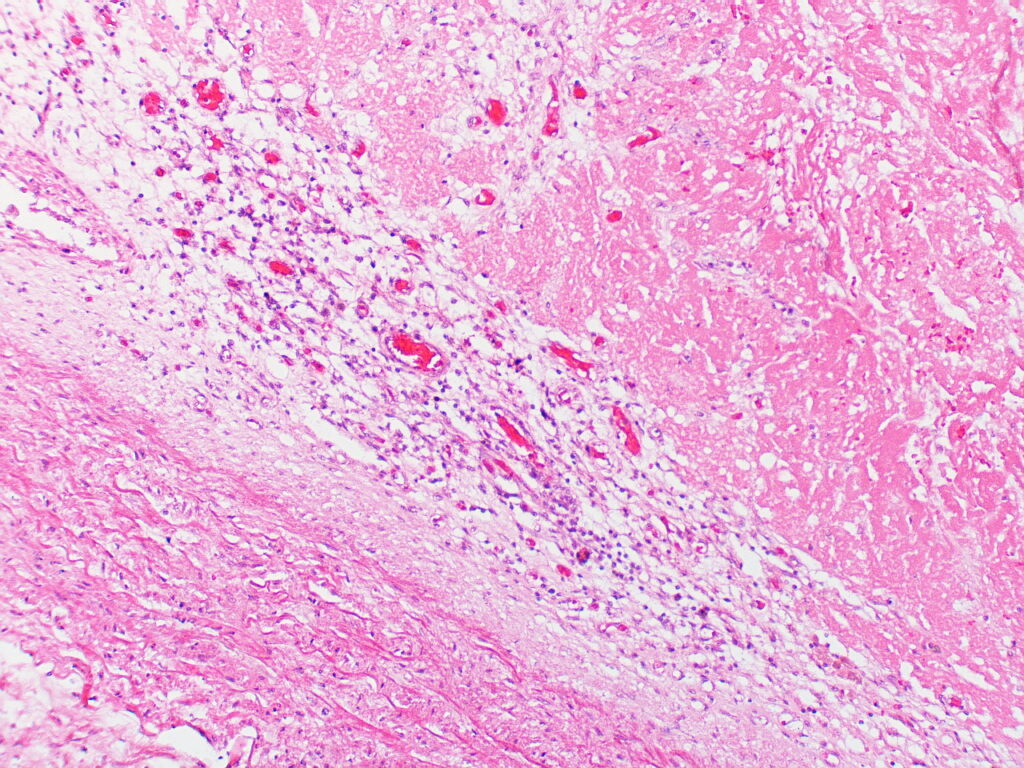The US Food and Drug Administration (FDA) has granted fast track designation for Anthos Therapeutics’ investigational Factor XI inhibitor, abelacimab, to treat thrombosis associated with cancer.

Abelacimab is indicated for the treatment of thrombosis associated with cancer. Credit: Atlas of Pulmonary Pathology/ Flickr (Creative Commons)
Subscribe to our email newsletter
The new highly selective, fully human monoclonal antibody, abelacimab has been designed to induce effective hemostasis-sparing anticoagulation through Factor XI inhibition.
It shows dual inhibitory activity against both Factor XI and its activated form, Factor Xia, with high affinity and selectivity.
The company stated that the inhibition of Factor XI provides hemostasis-sparing anticoagulation that helps in preventing and treating arterial and venous thromboembolic events.
Abelacimab administered intravenously (IV) effectively suppressed the Factor XI within one hour of the treatment and maintained near maximal inhibition for up to 30 days in a PK/PD study.
Anthos Therapeutics chief medical officer Dan Bloomfield said: “We believe that abelacimab has the potential to provide patients with cancer associated thrombosis an enhanced safety profile and overall low risk of bleeding, without sacrificing any efficacy of currently available agents.
“This unmet need is particularly true in patients with gastrointestinal / genitourinary (GI/GU) cancers who are at an even higher risk of bleeding and can be further burdened by the inconvenience of daily injections.
“We look forward to working closely with the FDA on our clinical trial program to bring once-monthly abelacimab to patients in need.”
In May this year, abelacimab has become the first Factor XI inhibitor to commence subject enrolment in a Phase III trial (The ASTER Study).
The randomised, international multicentre, open-label, blinded endpoint evaluation study has been designed to compare the effect of abelacimab with apixaban to assess their effects on recurrence of venous thromboembolism (VTE) and bleeding in patients with cancer associated VTE.
Additionally, abelacimab is being evaluated in the AZALEA-TIMI 71 trial in patients with atrial fibrillation (AF).
 Advertise With UsAdvertise on our extensive network of industry websites and newsletters.
Advertise With UsAdvertise on our extensive network of industry websites and newsletters.
 Get the PBR newsletterSign up to our free email to get all the latest PBR
news.
Get the PBR newsletterSign up to our free email to get all the latest PBR
news.

